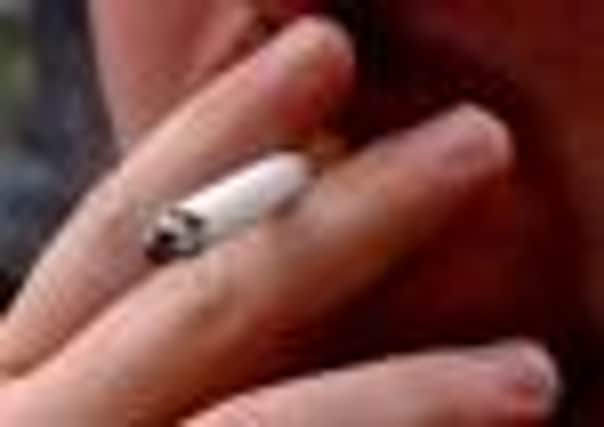Carstairs patient seeking damages over smoking ban


Charles McCann claims that being prevented from lighting up breaches his human rights, and he wants a court to declare the policy unlawful and to award him £3,000 in damages.
Management of the hospital is defending his action at the Court of Session in Edinburgh, insisting that the blanket ban was introduced for the sake of the health of patients and staff.
Advertisement
Hide AdAdvertisement
Hide AdLord Stewart has begun hearing submissions in the case, and he is expected to give a ruling in due course.
The court heard that Mr McCann, who was not present, had been ordered to be detained without limit of time in the State Hospital because he suffered from a mental disorder and was considered dangerous. No details were disclosed of the offence for which he was prosecuted and which led to the order. Any plans ultimately to release him would have to be approved by the Scottish Government’s mental health unit, which prioritises protection of the public.
Total ban
In 2011, patients were to be moved into new accommodation and facilities at the hospital, and the State Hospital Board for Scotland took the opportunity to look at its approach to smoking.
A questionnaire was issued and 86 per cent of patients, 84 per cent of carers and 54 per cent of staff supported a “partial prohibition.” A trial started with smoking allowed in designated external areas within the hospital grounds, and help was given to patients trying to kick the habit.
However, the board said, a number of “operational problems”arose, such as increased numbers of higher risk patients requesting grounds access. It was decided that a partial ban was unworkable and a total ban was introduced from 1 December, 2011.
Mr McCann’s lawyers told the judge: “He wishes to be permitted to smoke. He is not allowed to smoke or have tobacco products in his possession. The State Hospital is a large facility with extensive grounds. There are substantial areas of open space within the grounds and outwith the buildings where smoking could take place.”
The lawyers pointed out that prisoners were not subjected to a complete smoking ban, and neither were patients in other hospitals or psychiatric units.
“(The board) have acted irrationally in adopting the policy they have and at the time they did. They were in the process of undertaking a period of assessment in relation to a partial ban. Without further explanation, the decision to move to a complete ban is irrational...they have provided no rational reason for why they changed their decision to monitor the position and review it,” it was claimed.
Advertisement
Hide AdAdvertisement
Hide Ad“The smoking ban had a significant impact on the lives of patients at the State Hospital. There is no good reason for the different treatment of (Mr McCann) compared with individuals in prison or in other hospitals. The desirability of any given patient giving up smoking does not justify a blanket ban.”
Security
The board accepted that a majority had supported a partial ban, and said it had tried to follow their view.
“Management received reports from operational staff about concerns relating to safety and security, and significant operational and clinical disruption to the ward routine as a result of patient focus on smoking times. The board determined that in light of the information available, the partial prohibition was unworkable as a policy of indefinite duration despite the efforts of its staff. This was a decision which was reasonable in the circumstances,” it added.
The board maintained that a complete ban was adopted “in pursuit of a legitimate aim, namely the health of the patients in its care and the health of staff employed by it.”
Hospitals were non-smoking premises under smoking legislation, the board stated. Decisions about the extent, if any, to which smoking was allowed in the grounds of hospitals was a matter for the relevant NHS board, and the policy of the Scottish Government was to encourage boards progressively to introduce comprehensive smoke-free environments.